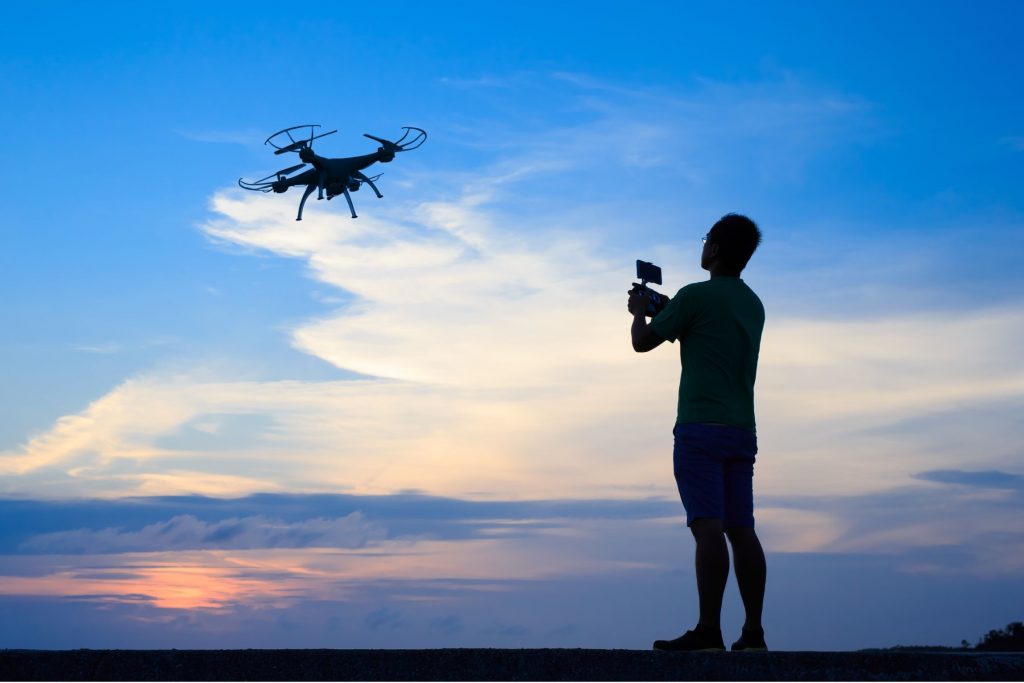Education & Career Trends: September 12, 2024
Curated by the Knowledge Team of ICS Career GPS

Excerpts are taken from an article published on indiatoday.in
As technology continues to evolve at an unprecedented rate, drones are rapidly emerging as critical tools across various industries. This transformation is changing how businesses operate and opening up an array of career opportunities for professionals with the right skill sets.
In India, the drone market is booming, with projections showing remarkable growth. The market is expected to surge from USD 654 million in 2024 to USD 1,437 million by 2029, at a compound annual growth rate (CAGR) of 17%. This expansion reflects the increasing need for skilled professionals who can navigate the evolving landscape of drone technology.
According to the Drone Federation of India, the industry boasts over 100 drone manufacturers, 200 service providers, and over 100,000 drone pilots. Moreover, with government-backed initiatives like Atmanirbhar Bharat and Svanidhi Yojana, the drone sector generates between 500,000 and 700,000 new jobs, particularly in mapping and infrastructure development.
Required Skills for Drone Professionals
To thrive in this fast-growing sector, drone professionals need a blend of technical knowledge and problem-solving abilities. Key skills include:
- Technical and Problem-Solving Skills: Drones can encounter various challenges during operations. Professionals must understand drone hardware and software, be able to troubleshoot problems and adapt to different drone models and capabilities.
- Aeronautical Knowledge: A strong understanding of aerodynamics, flight mechanics, and navigation principles is crucial. Knowledge of GPS technology and airspace management ensures safe and efficient operations while complying with aviation regulations.
- Programming Skills: As drones increasingly rely on autonomy, programming skills are essential. Proficiency in coding languages and software development allows professionals to manage drone operations, develop applications, and integrate drones with emerging technologies.
Emerging Trends in Drone Technology
As drone technology advances, several key trends are shaping the future of the industry:
- Autonomous Drones: These drones operate without human intervention, often in logistics, surveillance, or agriculture. Autonomous drones can handle repetitive tasks efficiently, allowing businesses to optimise operations.
- AI and Machine Learning Integration: Drones equipped with AI and machine learning are transforming industries like security, wildlife monitoring, and industrial inspection. These drones can process real-time data, detect objects, and make intelligent decisions.
- Urban Air Mobility (UAM): UAM involves using drones for passenger transport within cities. Companies like Uber and Airbus are already exploring drone taxis, which could revolutionise urban transportation. This emerging field will require specialised drone experts to bring the concept to reality.
Career Paths in the Drone Industry
The growth of drone technology has opened a range of career opportunities across multiple industries. Key roles include:
- Design Engineers and Assemblers: Design engineers create innovative drone designs that are lightweight, aerodynamic, and efficient. Assemblers then build these drones, integrating critical components like motors, sensors, and cameras to ensure the finished product meets industry standards.
- Drone Pilots: In high demand across agriculture, real estate, emergency services, and film production, drone pilots operate drones for aerial imagery, inspections, and precision tasks. Skilled pilots must understand flight dynamics, safety protocols, and industry-specific regulations.
- Drone Software Engineers: As drones become more advanced, the need for sophisticated software increases. Drone software engineers develop programs that enable autonomous flight, data processing, and communication with other systems. This role involves working with complex algorithms and AI to enhance drone capabilities.
- Drone Data Analysts: Drones capture vast amounts of data, and drone data analysts are responsible for extracting actionable insights from this information. These insights are crucial in sectors like agriculture, construction, and environmental monitoring, helping businesses make informed decisions.
Conclusion
The drone industry is not only reshaping traditional business operations but also creating new avenues for career growth. With the right mix of technical skills, aeronautical knowledge, and familiarity with emerging trends, individuals can tap into exciting career opportunities in this dynamic and rapidly evolving field. Whether it’s piloting drones, designing them, or analysing the data they collect, the future for drone professionals looks promising.
…
Have you checked out yesterday’s blog yet
How to Turn Your Internship into a Full-Time Job
(Disclaimer: The opinions expressed in the article mentioned above are those of the author(s). They do not purport to reflect the opinions or views of ICS Career GPS or its staff.)
Like this post? For more such helpful articles, click on the button below and subscribe FREE to our blog.





One Reply to “Trending Career Opportunities in the Drone Industry”